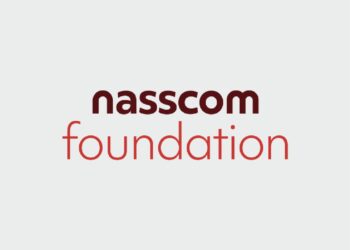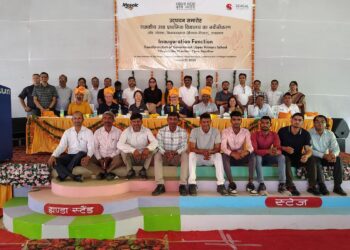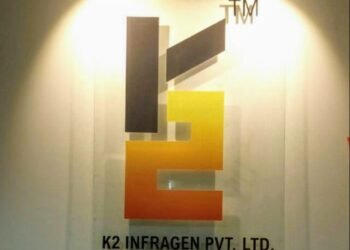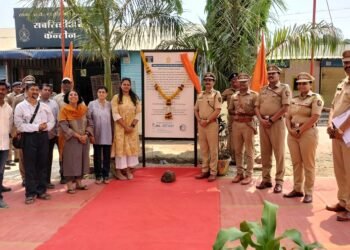BHARUCH: Drug major Cadila Pharmaceuticals has launched the Project SAAHAS (Strengthening Access & Awareness to Health in Hansot) to design and implement a holistic public healthcare model in Hansot taluka of Bharuch. An oxygen plant at Kaka- Ba hospital was inaugurated by hon’ble MLA , Shri Ishwar Sinh Patel.
Kaka-Ba Hospital, the charitable hospital run by Cadila Pharmaceutical Limited’s philanthropic arm Kaka-Ba and Kala-Budh Public Charitable Trust in Hansot, Bharuch, has inaugurated an oxygen plant.
The oxygen plant, having a 25 Normal Cubic Meter (NM3) capacity has been set up for Rs. 70 lakh, at Kaka-Ba Hospital. The plant is adequate to meet the oxygen requirement of around 40-50 patients round-the-clock.
“The oxygen plant will ensure an uninterrupted supply of medical oxygen to Kaka-Ba Hospital. We have set up the plant keeping in mind the current oxygen requirement, as well as any potential rise in demand during the third wave of the Covid-19 pandemic,” said Dr. Bharat Champaneria, Trustee of Indrashil Kaka-Ba & Kala-Budh Public Charitable Trust, and Chief Coordinator of Kaka-Ba Hospital.
Indrashil Kaka-Ba and Kala Budh Public Charitable Trust, the charitable arm of Cadila Pharmaceutical, has roped in the Global Health Strategies institute (GHSi) for the project, which is aimed to be a sustainable and replicable healthcare model.
Project SAAHAS also aims to scale up non-communicable diseases-related programmes by piloting a sustainable telehealth and telemedicine service model and build partnerships for the scalability of the intervention.
“Project SAAHAS aims to leverage existing government schemes and programmes to ensure regular last-mile delivery of health and nutrition services. It will identify the gaps and challenges in existing systems and recommend measures to address them,” said Dr. Bharat Champaneria, Trustee, Indrashil Kaka-Ba and Kala Budh Public Charitable Trust.
Project SAAHAS is designed to be completed over three phases, which will include Situational Assessment, Implementation, and Communications, scale-up, and community participation.
The Situational Assessment was carried out between April and August 2021 to identify the gaps in health and nutrition service delivery, gauging the status of service delivery post-Covid-19 and related intervention areas.
The assessment revealed that the Covid-19 pandemic and subsequent school closures severely impacted routine health programmes such as health screening under the Rashtriya Kishor Swasthya Karyakram (RKSK) programme, putting the health of children at risk. GHSi, which also conducted interviews and group discussions with district and block level health and education department representatives to understand the on-ground reality, found the pandemic has contributed to deepening nutrition inequities and other health vulnerabilities.
“The Covid-19 pandemic has shown us why it is more critical than ever that we work towards strengthening and improving access to key health and nutrition services for children, adolescents, and women. GHSi’s primary focus will be on reactivating health screenings for school children and strengthening referral follow-ups under the school health programme. We will leverage the infrastructure at Kaka-Ba Hospital, which can serve as a hub for coordination between schools and health officials for various interventions,” said Anjali Nayyar, Executive Vice President, Global Health Strategies.
Throughout this project, GHSi and Kaka-Ba Hospital aim to strengthen comprehensive services, especially those linked with the health and nutrition of children. They will also sensitise and engage locals on the available resources and giving them the tools to access care.
“Kaka-Ba Hospital has been providing high-quality healthcare services to people of Hansot for many years. The Project SAAHAS will go a long way in ensuring access to healthcare and nutrition among the beneficiaries, and improving the general health and wellness levels in the local community,” said former state minister and Ankleshwar MLA Ishwarsinh Patel.
GHSi’s primary recommendations following the Situational Assessment include facilitating the formation of a block-level sub-committee for inter-sectoral convergence to address gaps and challenges. It has recommended activating and strengthening the Peer Educators Programme (PEP) for outreach to at-risk teenagers, especially for substance abuse. To strengthen nutrition interventions, it has called for addressing misconceptions and raising awareness around critical issues, such as the timely treatment of malnourished children. It also recommends capacity-building activities for frontline health workers.
📢 Partner with India CSR
Are you looking to publish high-quality blogs or insert relevant backlinks on a leading CSR and sustainability platform? India CSR welcomes business and corporate partnership proposals for guest posting, sponsored content, and contextual link insertions in existing or new articles. Reach our highly engaged audience of business leaders, CSR professionals, NGOs, and policy influencers.
📩 Contact us at: biz@indiacsr.in
🌐 Visit: www.indiacsr.in
Let’s collaborate to amplify your brand’s impact in the CSR and ESG ecosystem.






























